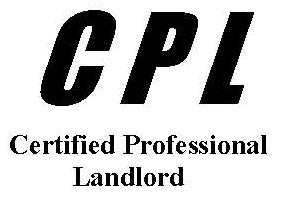This is the third article in this series on negotiating. Real Estate Negotiation Strategies - Part 1 -- Real Estate Negotiation Strategies - Part 2
Negotiation is a set of learned skills with various strategies to help you achieve the upper-hand over the other party. Sometimes negotiation can be easy and sometimes it can be quite difficult. In the first article of this series, we covered win-win negotiating, using power to your advantage, personality types, and body language. In the second article, we covered motivated sellers and buyers, asking for more than you expect to get, price bracketing, and some simple phrases to get the other side re-negotiating with themselves. This third and final article will get into some advanced negotiating techniques to help you close deals so that they end up in your favor.
Whenever you negotiate with someone, you want to make sure that you have all parties present. If a husband and wife or several partners are involved you want to make sure that you get every decision-maker together when you negotiate. Otherwise they most likely cannot make a decision and will end up re-negotiating with you in the future. So before you get into any serious negotiating, always ask if there is anybody else that will be assisting them in making the decision. On the reverse angle, when you negotiate you can often get the upper hand by having a second person on your team to assist in the negotiations. You can use the strategy of a “higher authority” to put the blame on a partner or some other person as to why you cannot sell at a certain price. Bank short sale departments do this all the time. Their undisclosed “investor” is not willing to cut a deal to make the short sale happen and the bank will never let you speak directly with this party that they are supposedly negotiating for.
This is one of the great advantages of having a 3rd party negotiate on your behalf. A real estate agent or attorney acts as a professional negotiator and can actually help you get a better deal than you could on your own. This 3rd party buffers out all the emotions from the transaction and allows you as a principal to only concentrate on the numbers and facts. On the other hand though, this can greatly separate the parties from all the body language, personalities, etc. that can help you in a negotiation, so there are some pros and cons. Also make sure if you do hire a 3rd party to negotiate for you that this person has strong negotiating skills. Many attorneys and real estate agents are poorly trained and can often do a worse job than you could for yourself. Experience counts when we start talking dollars and cents.
Another classic negotiating strategy is “good cop bad cop.” You will see this portrayed in movies and crime shows. Two cops interrogate a suspect as much as they can. Then all of the sudden one cop (the bad cop) goes into a rage and starts yelling and threatening and storms out of the room. Then the remaining cop offers to give the suspect some water or a cigarette and starts saying don’t pay any attention to that other cop. I’m here to help you. All we need to know from you is where you hid the knife and this will all be over soon. The good cop goes easy on the suspect and gets him to open up. The reality is that neither cop is on his side but they used the strategy to get the information they wanted. In real estate two partners could very easily do this. One partner storms out all emotional and rattles the cage of the opposing side. Then the other partner sweet talks them into giving up the farm. Watch out for this tactic because lots of people know about it. If they try it on you, make sure to confront them and let them know you are aware what they are doing. Or simply tell the bad cop not to be getting all emotional about things and stick to the transaction at hand.
Once you have worked out the basic price and terms of a deal, the next step is putting it in writing. Oh the fun of paperwork. So many people hate it. Even if you are not a paperwork kind of person, make sure that you (or your real estate agent or attorney) are the one writing up the contract regardless of whether you are buying or selling. You can slip so many extra beneficial clauses into the deal simply by your side drafting the paperwork. Why do you think banks force you to sign their 10 page addendum whenever you buy a foreclosure from them? They want the closing to happen by their rules and not yours. In fact the more you are in control of the deal, the better chance of it closing and avoiding all those surprise last minute mishaps that tend to pop up. That means not only controlling the paperwork but also the various vendors like the lender, the title company, the home inspector, the insurance, etc. You cannot force the other party to use certain vendors but the more you are in control the smoother your deal will go.
Have you ever gotten down to a few days before closing or even right at closing and the other party wants to renegotiate something? It happens at car dealers all the time. You find the car of your dreams and the price is right. Then they sit you down to close and start throwing in all these add-ons. (Dealer fees, extended warranty, financing fees, etc.) Before you know it they have you paying an extra $1000 for a bunch of nonsense. Same with real estate deals. The seller gets a copy of the HUD-1 settlement statement and starts complaining about various fees. To make the deal close, the title company knocks down some fees, the Realtor eats the cost of a home warranty, and the buyer pays more closing costs. Things like this happen because the re-negotiating party knows that everyone just wants the deal to close. People will end up paying an extra $500 or $1000 at the last minute when they would never have done so weeks ago when they were originally negotiating. Or think of the tenant that knows they agreed to pay you late fees, but still pays the rent a week late and does not include the extra fees with their check. Often when people are in a good mood that they are finally closing or getting paid, they are vulnerable to this sort of re-negotiating. The easy way to counter-act this is to have an iron-clad contract and then stick to your guns. Make them feel guilty for trying to re-negotiate or slip something by you.
Tradeoffs are another tactic to use when the other side starts asking for more concessions. “If I do that for you, what can you give me in return?” is a great phrase to use. A few years ago after I had already negotiated a deal, the seller came back to me and said that he needed to wait another 3 weeks until after December 31 to close so he could postpone income taxes. So I asked the seller if I gave him an extension, what could he do for me? He gave me $500 off the price. When you ask for something in return, it does two things. One is it puts value on that concession that the other party apparently did not believe was there. Two it puts an end to the grinding away process because they know you will ask for something in return.
Occasionally you will reach a stalemate where neither party will budge on a deal. Everything has been negotiated as far as it can go but an agreement cannot be reached. If the stalemate is on a specific issue, the buyer insists on a new roof being installed and the seller refuses to install it, the issue can be set to the side and dealt with at a later time after the rest of the terms have been negotiated. If both sides are truly deadlocked, the only solution then becomes to change something in the negotiations. Make the parties separate for a few days and come back at a later time at a different venue after they have had a chance to reflect some more on the deal. Or bring in a 3rd party, preferably someone that appears neutral, to evaluate the situation and see if something can be changed or approached in a different way.
There is a lot more to negotiating than I can write in three articles. So if you have questions on the best way to negotiate a particular deal, please do not hesitate to contact me.







Comments(3)